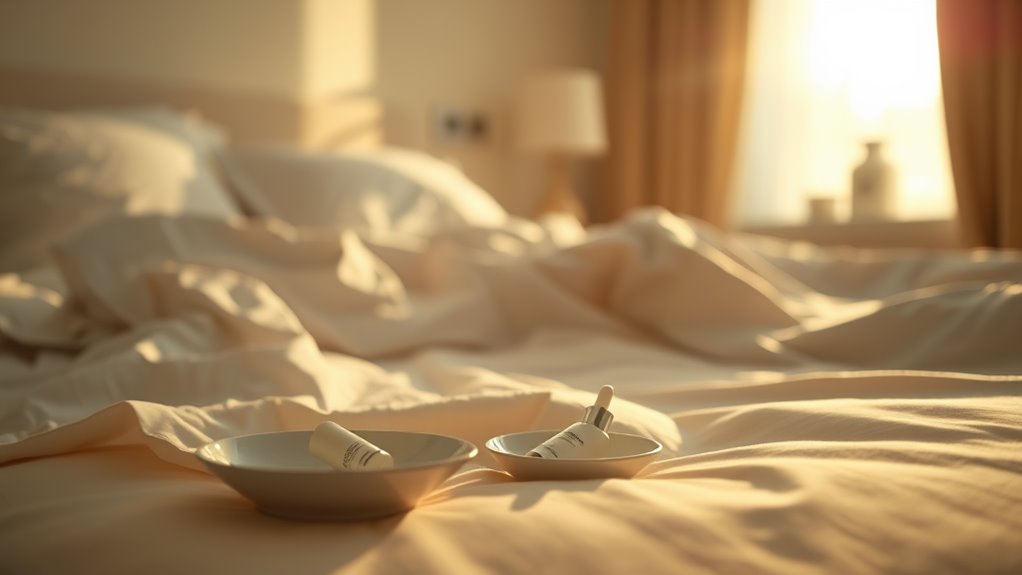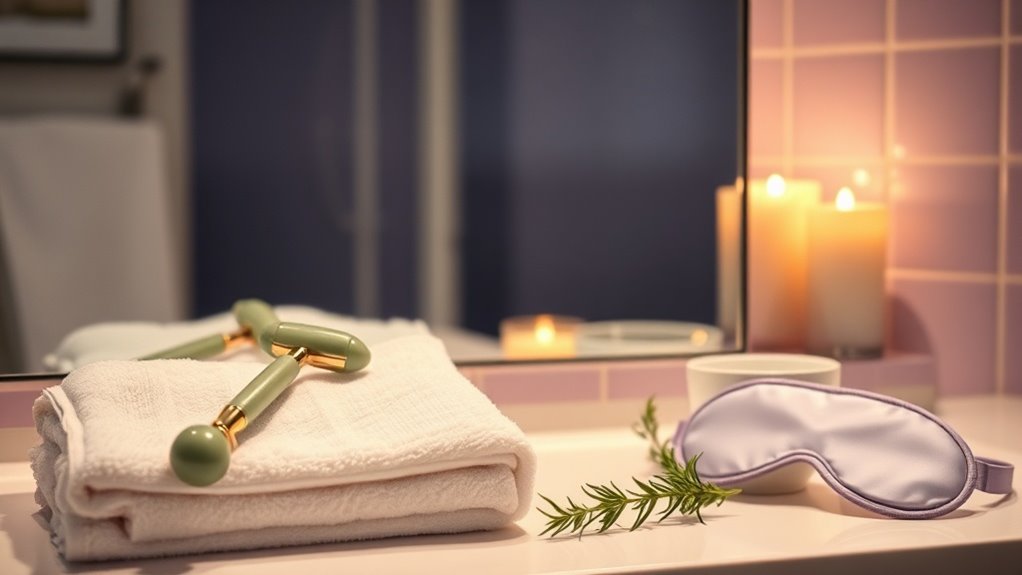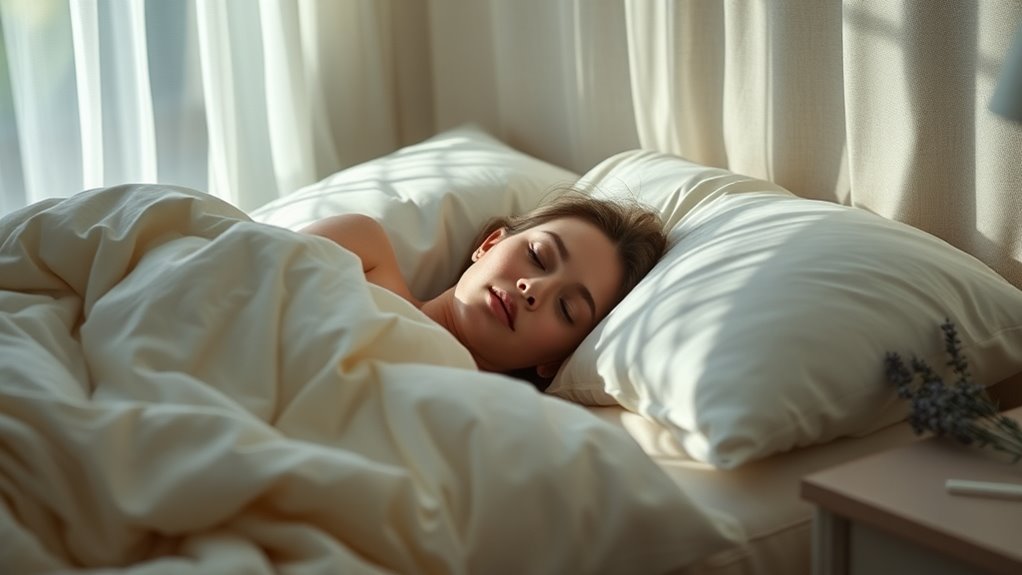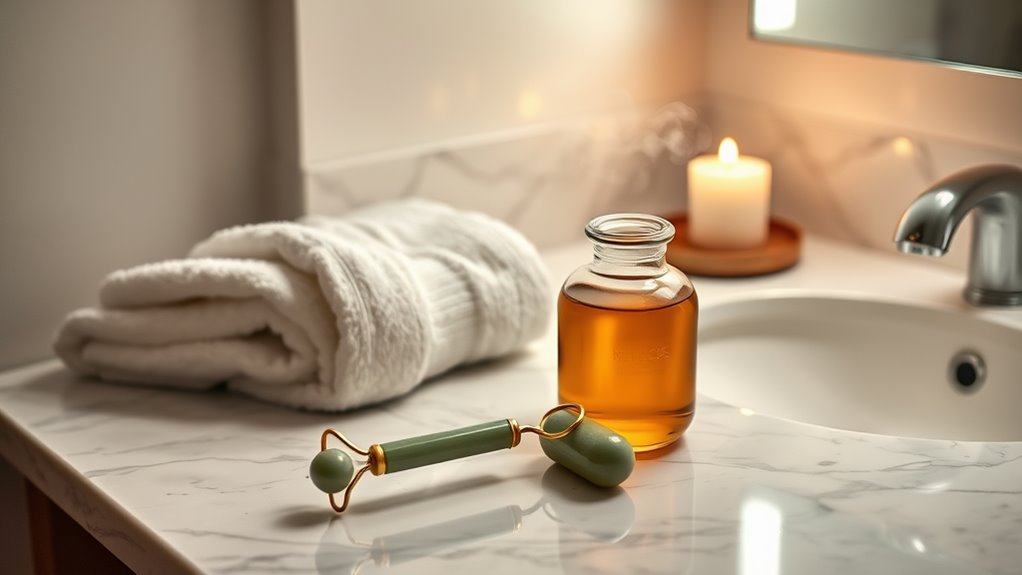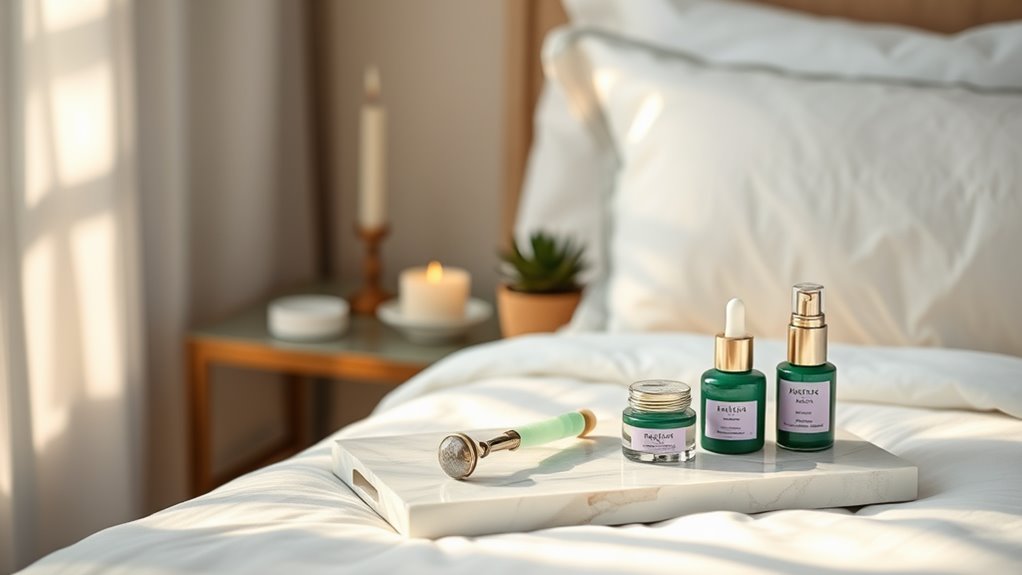The Surprising Link Between Sleep and Breakouts
Have you ever wondered why your skin seems to rebel after a restless night? Sleep plays a crucial role in skin health, influencing processes like collagen production and inflammation control. When you’re sleep-deprived, cortisol levels rise, leading to excess oil and clogged pores. This connection between poor sleep and breakouts isn’t just a coincidence; understanding the underlying mechanisms can help you regain control over your complexion. What can you do to improve your sleep and, in turn, your skin?
Key Takeaways
- Poor sleep quality elevates cortisol levels, leading to increased inflammation and higher rates of breakouts.
- Sleep deprivation disrupts skin repair processes, making it more susceptible to acne and dull complexion.
- Chronic lack of sleep impairs immune function, weakening defenses and increasing acne risk.
- Elevated cortisol from stress and poor sleep clogs pores by increasing oil production, causing breakouts.
- Maintaining a consistent sleep schedule and creating a relaxing environment can improve sleep quality and skin health.
The Science Behind Sleep and Skin Health
How does sleep impact your skin health?
Sleep plays a crucial role in maintaining your skin’s integrity.
During deep sleep, your body undergoes repair processes, including the production of collagen, which helps prevent acne and promotes elasticity.
During deep sleep, collagen production aids in preventing acne and enhancing skin elasticity.
Poor sleep disrupts this cycle, increasing cortisol levels, which can lead to inflammation and exacerbate acne.
Additionally, inadequate rest impairs the skin’s barrier function, making it more susceptible to environmental aggressors and breakouts.
Studies show that individuals who get less quality sleep experience higher rates of skin issues, underscoring the essential connection between sleep and acne management.
Furthermore, chronic sleep deprivation can lead to premature aging, further complicating skin health and appearance.
Prioritize restful nights for healthier skin.
How Sleep Deprivation Triggers Breakouts
Ever wondered why those late nights often lead to unexpected breakouts? Sleep deprivation disrupts skin repair processes, leading to increased inflammation and sebum production. Your skin’s ability to heal is compromised, making it more susceptible to acne. Additionally, adequate sleep is essential for maintaining skin vitality and overall health.
| Effect of Sleep Deprivation | Skin Response | Resulting Impact |
|—————————–|————————|————————–|
| Increased Cortisol | Higher inflammation | Breakouts |
| Reduced Growth Hormone | Slower skin repair | Dull complexion |
| Impaired Immune Function | Weakened defenses | Increased acne risk |
Improve your sleep quality to enhance skin health and reduce the likelihood of breakouts.
The Role of Stress Hormones in Skin Condition
What role do stress hormones play in your skin’s health?
When you’re stressed, your body releases cortisol, which can increase oil production in your skin. This excess oil clogs pores, leading to breakouts. Elevated cortisol levels also trigger inflammation, exacerbating skin conditions like acne and eczema. Furthermore, stress can impair skin barrier function, making it more susceptible to irritants and pathogens. Studies show that chronic stress correlates with a decline in skin health, contributing to premature aging and loss of elasticity. Additionally, stress contributes to various skin issues, highlighting the importance of managing stress for overall skin wellness. Managing stress through techniques like mindfulness or exercise can help maintain healthier skin and reduce the likelihood of breakouts.
Sleep Quality and Its Impact on Inflammation
Although you might underestimate the connection, sleep quality significantly influences inflammation levels in your body. Research shows that poor sleep disrupts the body’s natural circadian rhythm, leading to increased production of pro-inflammatory cytokines.
This inflammation can manifest as skin issues, including breakouts. A lack of restorative sleep also impairs the body’s ability to repair and regenerate skin cells, exacerbating inflammatory responses.
Furthermore, chronic sleep deprivation has been linked to elevated cortisol levels, which further intensifies inflammation. By prioritizing high-quality sleep, you can help regulate your body’s inflammatory processes, potentially reducing the risk of skin problems like acne. Additionally, inadequate pillow hygiene can contribute to skin irritation and exacerbate breakouts, highlighting the importance of both sleep quality and cleanliness in your sleep environment.
Tips for Improving Sleep and Achieving Clearer Skin
How can you enhance your sleep quality to promote clearer skin? Prioritizing sleep hygiene and adopting specific habits can significantly improve your skin health.
| Tip | Explanation |
|———————-|—————————————————–|
| Maintain a Schedule | Go to bed and wake up at the same time daily. |
| Create a Relaxing Environment | Dim lights and reduce noise to signal sleep. |
| Limit Screen Time | Avoid screens at least an hour before bed to reduce blue light exposure. |
Implementing these strategies fosters deeper sleep, allowing your body to repair cells and reduce inflammation, ultimately contributing to clearer skin. Additionally, better sleep habits can unlock radiant skin by optimizing your nightly routine.
